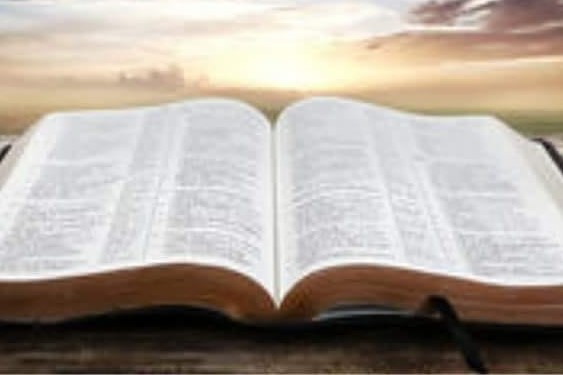07 January
Bible in 365 Days
Genesis 22-24
Genesis 22
In this chapter we have the account of the seventh appearing of Jehovah to Abraham and it is that of his supreme testing and consequent bringing into fellowship with God. It must have been in many ways a desolating trial, without apparent reason, coming suddenly and without explanation. Nevertheless, it is the story of the triumph of faith. Abraham passed through the fiercest fire and endured the greatest pressure as his faith was put to the most tremendous strain.
The statement that "God did prove Abraham" is in itself suggestive. He confers honor where He proves. He did not prove Lot. Sodom did that. God proves the man who is proof against Sodom. The outstanding revelation of Abraham is that of one who walking by faith and not by sight rendered active, ready, and quick obedience. The man who really believes in God is always able cheerfully to obey Him, because present sacrifice is set in the light of the necessity for the fulfillment of God's declared purpose. Abraham rested in God rather than in any blessing He bestowed, even though that were Isaac. Faith depending on the divine promises saw beyond the sacrifice and was able to obey.
It may be that the story can never be interpreted in the realm of the natural, and the only thing we can say about it is that through the experience Abraham was brought into fellowship with the God who so loved the world that He gave His only begotten Son.
The testing was followed by the repetition to Abraham of all the great and gracious promises already made to him.
Genesis 23
We now see Abraham in the midst of personal sorrow, which reveals his character in a remarkable way.
Sarah, who had ever been to him a princess, was now taken from his side, which meant the loss of the strongest human prop to Abraham's faith. It must be remembered that she had been with him along the whole pathway of obedience from Ur of the Chaldees. She had shared his hours of darkness and his hours of light. Doubtless at times she had been a cause of fear and trembling to him, and his very love for her had brought him to some deflections from faith. But far more often her comradeship had strengthened him.
When she died, Abraham is seen in his action as a man full of the dignity that comes from faith. He was first of all a mourner, shedding the tears which expressed the sorrow and loneliness of his life. Faith never kills affection, and the man was keenly alive to the loss he had sustained.
Yet faith never allows sorrow to overwhelm. He "rose up from before his dead." His next action was definitely one of faith. He did not take Sarah to Ur, but buried her in the land which God had given to him. That faith operated, moreover, in the method he now followed. He was willing to receive the land as a gift from God, but would not receive part of God's gift as a gift from the sons of Heth. Abraham's first actual possession in the land, therefore, was a grave. This in itself is a teaching and a prophecy. God begins where man ends. The sorrows of life reveal a man's true character as perhaps nothing else can. Faith weeps beside the dead and then moves on to fulfillment of duty as it puts a check on sorrow. Faith takes hold of earth's greatest despair, death, and makes it the occasion of a possession which holds within itself all the future.
Genesis 24
This chapter is complete in itself and is a perfect idyll. Abraham was well stricken in years. Sarah was dead. Isaac, the son of Abraham, was still unmarried. In the interest of the divine program Isaac must not marry a Canaanite nor go back to find a bride among the people who had been left behind. Thus Eliezer was sent to seek a bride among his own kindred. Of course, the story is Eastern, and gives the account of how the quest was undertaken and rewarded.
In this story Laban appears and his masterfulness is manifest in the way he acted as host in the house of his father. Rebekah's consent to go showed her responding to the divine purpose and her willingness to move forward along the divine pathway.
The story of the woman going the long distance toward her new home, and of Isaac, the man of quiet, passive faith, meditating in the field at eventide, is picturesque and full of beauty. Apart from these details of the faraway land, we have here a beautiful picture of an ideal marriage. It is the union of a man and woman on the basis of identity in principle. By faith Isaac waited and by faith Rebekah obeyed. It is, moreover, the union of opposites. In Rebekah faith was adventurous and bold. In Isaac faith was retiring and meek. The two lives were made one on the basis of response to a common principle. Two natures utterly different, yet complementing each other, were united for the fullilment of a divine purpose. In the story of these two as it proceeds we shall come across failure on both sides, but here the shadows have not gathered, and the faith of Abraham is rewarded in the union of his son, a man of passive faith, with Rebekah, a woman whose faith is adventuresome and bold.
